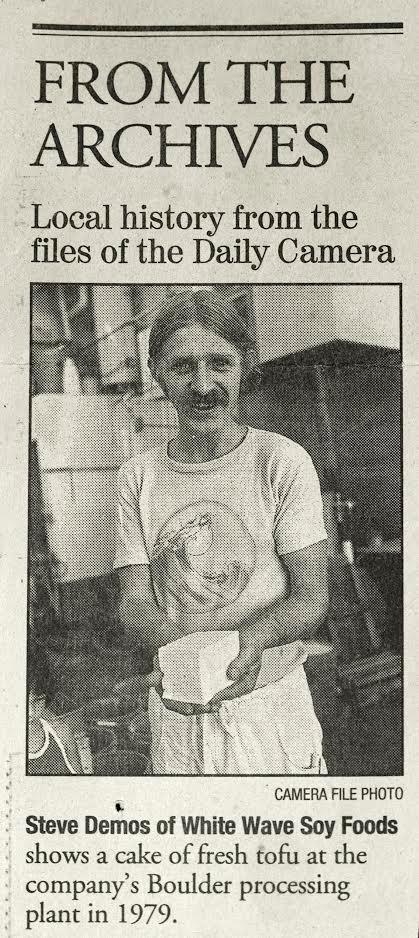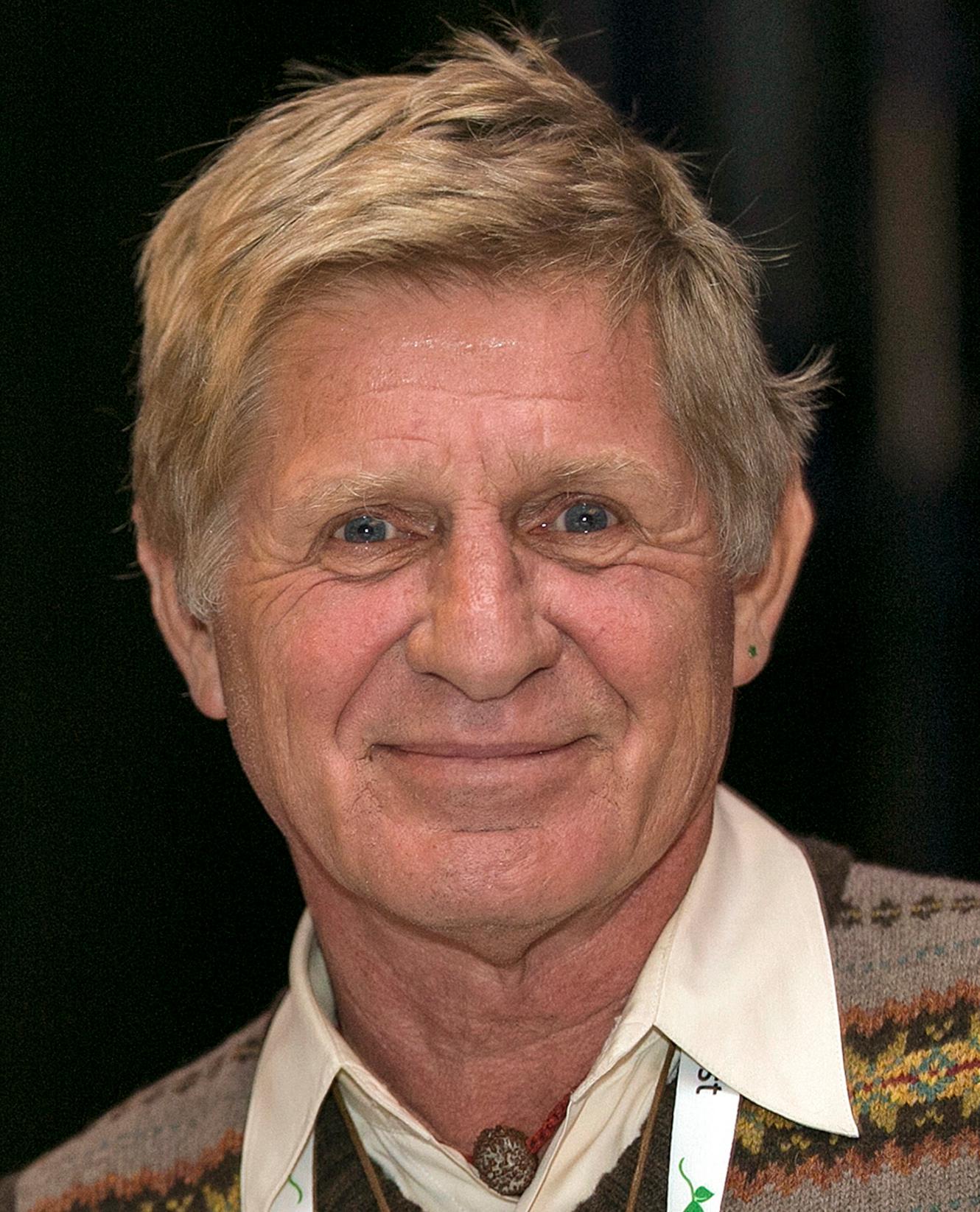
Danone will sell its Stonyfield Farms business to gain approval from the U.S. for a $12.5 billion buyout of Denver's WhiteWave Foods, doubling the size of the French company's business in North America, according to the AP. We spoke to WhiteWave founder Steve Demos last year about the company, it's vision, growth and impending sale. This story first aired on August 30, 2016.
It was 1977 in Boulder, the era of "small is beautiful" and the beginning of a natural foods movement.
Steve Demos was among the movement's pioneers. He founded WhiteWave Foods in a small kitchen in Boulder, stirring tofu by hand in an iron cauldron with a big paddle. Demos left WhiteWave in the early 2000s and the company continued to grow. Now, it's set to be sold to the French conglomerate Danone Foods for about $10 billion.
Demos says WhiteWave was inspired by "conscious capitalism," the idea of creating a business that serves society while making a profit.
Yogurt Giant Danone Purchases Colorado's WhiteWave For $10B
WhiteWave's sale, at a premium price, signals consumers' growing desire for fresher products with fewer processed ingredients, according to Beth Howitt, who covers the food industry for Fortune Magazine. Demos and Howitt spoke to Colorado Matters host Ryan Warner about the pending sale.
Interview highlights
Demos on how the business began:
"We were trying to replicate the Japanese artisans and the Chinese artisans who had made village tofu. Unfortunately we found that small was very beautiful but highly unprofitable. And we sort of switched gears to becoming a true manufacturer after struggling for about a year."
Demos on early struggles:
"We were at the Colorado State Fair at one point, in all of the supermarkets. We would make up tofu meatballs, tofu sandwiches -- anything that we could possibly get our hands on. And for all of our efforts, I'd have to say it didn't work. I was very passionate about it. But convincing America to try a substance that could be described as soft, strange, no flavor, never had anything like this before, was a real challenge."
Demos on why he started the business:
"We were an overnight success in 18 years. Tenacity and perseverance really do count. And it really was a rising tide. My observation of why I even wanted to get into this product was because there was a rising demand for food on the planet and there was an ever-increasing population base. I had been living overseas in India for a number of years and became very sensitive to the fact that we were the highest consumption country in the world. I took it upon myself to introduce the American mainstream to an alternative way of living."
Demos on how the product was delivered:
"At the time, when the shop ... was making tofu, it would be fresh every morning. And there was a health food story down the street in Boulder called Down to Earth. Trudy Stewart and her child would load up in the little red wagon and take maybe 50-100 blocks of tofu three to four blocks down the road. I got credited with taking the wagon up and down the street when in fact I was driving a Jeep down to Denver to distribute it to the natural food stores there."

Demos on the cauldron that started it all:
"I'm sure a lot of sorceresses would love to have this cauldron. ... We processed hot soymilk in this hot cauldron for a number of years. And we would curdle the milk and precipitate the curds out of this liquid and press them into tofu. So it was an actual working tool for us during our artisan days. Once we shifted to factory production then we, like every other factory, used stainless steel equipment for sanitation purposes. But this was the beginning of our company."
Demos on why he agreed to sell:
"At that time, there was a great fear of being eaten by a large corporation. ... [Company executives decided] 'we need to have autonomy. And we need to continue running this business the way we have been running this business and we'll be a happy part of this new corporation.' They agreed entirely. ... And they supported our growth. They bought us when we were, I believe, a $125 million business. But when I left at the end of this tenure, we were at $304 million with a budget of $360 million."
Howitt on the state of the natural food sector:
"More than anything, this shows that natural, organic foods are mainstream. This is the biggest deal we've seen in the natural and organic food space. And I think it's a done deal. Natural, healthy food is no longer niche."
Howitt on why big companies buy small firms:
"They are buying them at these prices in part because there is this health halo attached to the smaller brands that are more entrepreneurial that consumers perceive in a certain way. So it's critical when these big food companies buy the smaller brands, that they don't mess that up. Otherwise, they are really eroding a lot of the value."
Howitt on why small firms sell:
"The food business is really hard. Margins are slim. And it's a double-edged sword here. We want these products. Consumers are saying 'we want more natural goods. We want healthier fare.' How do you do that? You've got to scale. So yes, these companies get acquired by Big Food. But then they are much more accessible to the masses."









